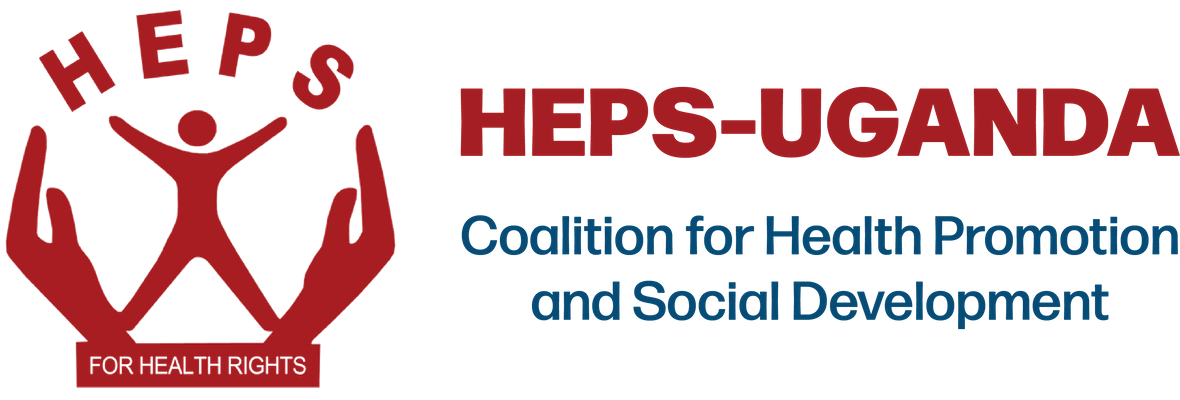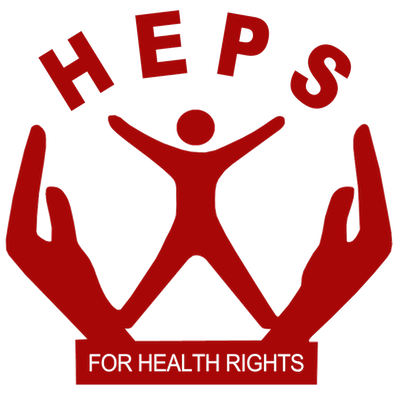From us, HEPS-UGANDA @25
- HEPS-UGANDA @25 hosted the Global Health Advocacy Incubator (GHAI) for a project update meeting on the communication strategy for the VOICES project. The meeting aimed to review the communication strategy and explore the effective implementation of the planned approach.
- HEPS-UGANDA @25 February 18 participated in the strategy review for the Coalition to Stop Maternal Mortality Due to Unsafe Abortion (CSMMUA) together with the Centre for Human Rights and Development(CEHURD) and other stakeholders and Civil Society Members in response to recent developments related to Trump’s Executive Order and the potential impact on coalition efforts.
- HEPS-UGANDA @25 collaborated with Makerere University Infectious Diseases Institute (IDI), the African Society for Laboratory Medicine (ASLM), and Baylor Uganda to convene a five-day (17-21 February 2025) writing workshop for the 2024 National Annual Surveillance Report of Antimicrobial Use, Consumption and Resistance (AMU/C/R) in Uganda. The workshop, held at Kampala Nile Resort and attended by experts and stakeholders in health, agriculture, and the environment, was an activity under the Fleming Fund Country Grant II Project, for which HEPS-UGANDA @25 is an implementing partner in a consortium of one of the grantees led by Baylor Uganda. The UK’s Fleming Fund is the leading development partner of Uganda’s response to the growing problem of drug resistance. The response is based on the One Health framework, which integrates human, animal, and environmental health.
- HEPS-UGANDA @25 participated in a meeting on 20 Feb that was hosted by the Centre for Women Justice Uganda, focusing on addressing the criminalization and discrimination of People Living with HIV (PLHIV) and Key Populations (KPs) in Uganda. The discussion highlighted the current state of HIV and KP criminalization, and its impact on health outcomes, and identified strategic advocacy efforts to tackle legal and policy barriers. Participants also explored opportunities for collaboration to ensure gender and human rights remain central in the integrated HIV response. Additionally, the meeting aimed to develop a collective action plan to drive legal and policy reforms that protect and uphold the rights of vulnerable populations.
From our partners:
- Centre for Human Rights and Development (CEHURD) hosted the Coalition to Stop Maternal Mortality due to Unsafe Abortion(CSMMUA) quarterly meeting focused on reviewing strategies in response to President Trump’s Executive Order assessing its potential impact on coalition efforts and planning the 2025 CSMMUA strategic agenda.
- AMR, AMU, AMC surveillance training: The African Society for Laboratory Medicine (ASLM), a pan-African Organisation promoting increasing access to quality laboratory services, recently held a training of representatives from Uganda’s Ministries of Health, Agriculture, and Environment, and other stakeholders in the surveillance of antimicrobial resistance (AMR), antimicrobial use (AMU) and antimicrobial consumption (AMC). Participants were skilled in effective surveillance site selection, quality management systems (QMS), and data management.
- ICWEA’s Mworeko on IAS advisory committee: Lillian Mworeko, the Executive Director of the International Community of Women Living with HIV East Africa(ICWEA), has been appointed to the Person-centered Care Advisory Committee (PCC-AC) of the International AIDS Society (IAS). IAS is the world’s largest association of HIV professionals, with over 17,000 members from more than 170 countries. The PCC Advisory Committee (PCC-AC) provides strategic advice to the IAS, guides the IAS PCC program and the implementation of its activities, and empowers people living with and affected by HIV to demand person-centered HIV care.
- AVAC 1:0 Trump: On 13 February, a federal district court granted AVAC’s motion for a temporary restraining order against the Trump administration’s wholesale freeze on foreign assistance funding. The order, a critical win, lifts the freeze and restores funding while AVAC’s lawsuit against the administration moves forward.
- Makerere University School of Public Health’s Professor David Guwatudde points out that staying physically active is a simple yet effective way to prevent heart disease, diabetes, and cancer. However, in Uganda, physical activity is declining due to a growing health concern—modern work that requires long hours of sitting, sometimes the entire day, without breaks. This inactivity not only harms physical health but also impacts mental well-being, contributing to the rise of non-communicable diseases (NCDs). It’s time to take action and reverse this trend.
From your community:
- Kamuli HC II gets an E-Management record On February 19, the health care Digital System was launched in Kamuli District at Naminage Health Centre II with a call for the health workers to embrace new technology. This computerized system aims to improve access to medical data, addressing previous challenges of data loss and difficulties in tracking patient records.
- Mutungo Rehab Centre overwhelmed by the influx of drug addicts after US Funding Withdrawal Over the last few weeks, the Presidential Initiative on Rehabilitation and Skilling of Ghetto Youth, a rehabilitation centre based in Mutungo, Kampala, has been overwhelmed by numbers, receiving an influx of over 60 substance users or drug addicts per day. This followed the abrupt withdrawal of funding from the US, which led to the closure of critical harm reduction centres, including the Medically Assisted Therapy clinic at Butabika Hospital,
- Understaffing affects health services at Kiryandongo Panyadoli Health Centre IV Panyadoli Health Centre IV, located in Bweyale Town Council within Kiryandongo District is the only government health facility in the town. The District leaders and health officials in Kiryandongo are expressing concerns over the increasing number of patients at Panyadoli Health Centre IV due to inadequate staffing and a shortage of medical supplies.
From Uganda:
- Gov’t Prioritising Mpox Vaccination for Sex Workers: The Ministry of Health has rolled out 10,000 doses of the Mpox vaccine, primarily targeting high-risk groups, including commercial sex workers. Minister of Health Dr. Jane Ruth Aceng revealed that by January 31, a total of 9,980 individuals had received the vaccine. She further announced that the African Centre for Disease Control has allocated an additional 100,000 doses for Uganda in the coming weeks.
- Fighting Mpox, Ebola: The Intergovernmental Authority on Development (IGAD) has boosted Uganda’s ongoing fight against Ebola and Mpox with UGX 14 billion (USD 4 million). The funds are intended to strengthen Uganda’s Emergency/Pandemic Response Plan, particularly in addressing the impacts of Mpox and Ebola viral diseases.
- Ministry of Health fights sexually transmitted infections with wellness centres: Uganda’s Ministry of Health, in partnership with AHF Uganda Cares, has established two wellness centres (Kintante wellness centre and Lukaya wellness centre) offering free sexual health services, including STI screening and treatment.
- Ministry of Health Discharges 8 Ebola Patients: The National Drug Quality Control Laboratory in Mulago was the venue where Health Minister Jane Ruth Aceng oversaw the discharge of eight out of the nine Ebola patients currently under treatment.
From the region:
- Private hospitals in Kenya suspend service to civil servants: The Rural and Urban Private Hospitals Association of Kenya (RUPHA) announced on Thursday, February 20, that its member hospitals will suspend services for civil servants until outstanding government-backed insurance debts are settled. RUPHA revealed that the government has accumulated a debt of approximately Ksh29 billion (USD 224 million) to private hospitals, dating back to the defunct National Health Insurance Fund (NHIF) in 2017.
- Zanzibar Finalizes Costed National Action Plan to Fight Antimicrobial Resistance (AMR): With support from the World Health Organisation (WHO), the Ministry of Health of Zanzibar and the Ministry of Natural Resources, Irrigation, and Livestock have finalized the costing and budgeting of its National Action Plan (NAP) on AMR for 2025-2029. The exercise reaffirmed Zanzibar’s commitment to a coordinated, multisectoral response to AMR.
- Africa CDC and Global Health EDCTP3 sign Memorandum of Understanding to promote public health in Africa: Africa centres for Disease Control and Prevention(Africa CDC) and Global Health European and Developing Countries Clinical Trials Partnership 3 (Global Health EDCTP3) have signed a Memorandum of Understanding (MoU) to support their shared goal to promote public health in Africa and to reinforce their collaboration in strengthening health research, clinical trials, and pandemic preparedness across the African continent.
Global health security:
- World Health Organisation (WHO) advises against travel restrictions amid rising Ebola cases in Uganda: As Uganda’s Ministry of Health reports an Ebola virus outbreak, the World Health Organisation advises against travel restrictions. Instead, they recommend that Uganda’s Ministry of Health prioritize strengthening containment measures and providing support to affected communities.
- Rwanda’s Marburg outbreak over: The Marburg outbreak in Rwanda is officially over, health authorities said, putting an end to the Central African country’s first bout with the highly lethal Ebola-like virus. No new Marburg cases have been reported in at least 42 days, and the last patient tested negative for the virus twice, according to the World Health Organisation (WHO), following the official protocol to declare an end to infectious disease outbreaks. Since the outbreak was confirmed in late September, officials reported 66 cases and 15 deaths.







